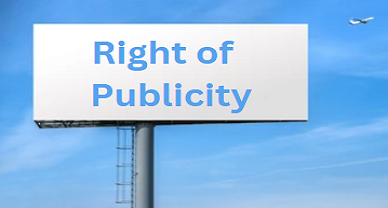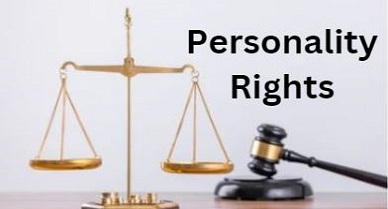Right of Publicity Part 2
This article is divided into two parts. The first part of this article explained the meaning of publicity rights and delved into the facet of legal recognition of publicity rights in jurisdictions other than India. In this second part of the article, we shall exclusively understand the legal position of publicity rights in India. First Part Right of Publicity Published on Mondaq.
Right To Publicity- A Constitutional Right
The right of publicity stems from the right of privacy. But right to privacy only came to be recognised as a fundamental right in the year 2017 in the case of Justice K.S. Puttaswamy (retd.) and Anr. v. Union of India and Ors. Nonetheless, in R. Rajagopal v. State of T.N., the Apex Court held that one of the inherent aspects of the right to privacy as enshrined under Article 21 of the Constitution is the right to prevent others from using the person’s name or likeness without his consent for advertising or non-advertising purposes. This also includes the right to prevent others from publishing the life story of a person, whether written in a laudatory manner or in the form of a critical commentary.
[Image Sources: Shutterstock]
Placing reliance on the verdict in the case of R. Rajagopal v. State of T.N., the Hon’ble Delhi High Court in Phoolan Devi v. Shekhar Kapoor,where the former lady dacoit Phoolan Devi had protested against her portrayal in the film “Bandit Queen”,ruled that the right to privacy must encompass and protect the personal intimacies of the home, family, marriage, motherhood, procreation, and child rearing, irrespective of whether the person is a public figure. The Delhi High Court, while taking note of the documents and evidence on record, concluded that the Plaintiff had, in fact, not consented and given license to the defendants to make the film in any manner that they wished. Thus, the Defendant did not have the liberty to exhibit the Plaintiff being subjected to sexual abuse, as shown in graphic detail in the film.The Delhi High Court court held that a celebrity could protect his/her life and image as a “constitutional right”.
For the first time, publicity rights were expressly dealt with as a facet of privacy rights in the case of ICC Development (International) v. Arvee Enterprises in 2003. Therein, the Court categorically held that the right of publicity has evolved from the right of privacy and can inhere only in an individual or in any indicia of an individual’s personality like his name, personality trait, signature, voice, etc.
Protection Of Publicity Right As A Well-Known Trademark
Although, publicity rights do not have any statutory protection per se in the Indian Law, but publicity rights in some form are protected by The Trade Marks Act, 1999 and The Copyright Act, 1957.
Section 14 of The Trade Marks Act, 1999: Section 14 states that in cases where there is an application for registration of a trade mark which falsely suggests a connection with any living person, or any person whose death took place within twenty years prior to the date of application for registration of the trade mark and the applicant does not have a written consent of such living person or the legal representative of the deceased person as the case may be, the Registrar may refuse to proceed with the application unless the applicant furnishes such consent.
In several cases, the courts have construed the protection granted to well-known trademarks as extending beyond the right of publicity of celebrities. InD.M. Entertainment Pvt. Ltd. vs. Baby Gift House and Ors., a well-known Indian singer, composer, and performer named Daler Mehndi, brought an action against a party that had registered the domain name “dalermehndi.net.” The Hon’ble Delhi High Court observed in this case that an entertainer’s name may have value as a trademark which barred the defendant from using the mark and domain name.
In the same way, in ArunJaitley v. Network Solutions (P) Ltd., the plaintiff Mr. ArunJaitley, a well-known political figure in the Bharatiya Janata Party, filed for a permanent injunction to stop the defendants from misusing the domain name www.arunjaitley.com. Moreover, the plaintiff requested the instant transfer of the said domain name since they wanted to register it via the defendants’ website. The Hon’ble Delhi High Court affirmed Mr. Jaitley’s right and pronounced that any person may be restrained from using the names of popular or well-known celebrities, when the particular name is a well-known trademark as envisaged under the basic principles of trademark law and thatcelebrity is entitled to use his name for commercial purposes.
Protection Of Publicity Right As A Copyright
Section 38 and Section 38A of The Copyright Act,1957: Section 38 and Section 38A pertain to performer’s right. A performer, in relation to a performance in which he appears or engages. Such performer’s right is an exclusive right subject to the provisions of The Copyright Act,1957 to make a sound recording or the visual recording of the performance, including reproduction of it in any material, issuance of copies of it to the public, communication of it to the public, selling or giving it on commercial rental or offer for sale or commercial rental any copy of the recording, broadcast or communicate the performance to the public except where the performance is already broadcast.
InRaja Pocket Books v. Radha Pocket Books,the plaintiff filed a copyright infringement case against the defendant for publishing a comic book character named ‘Nagesh’. The plaintiff was in the business of publishing and distributing the comic series title ‘Nagraj’ in which the character Nagraj normally wears a green colour body stocking giving the impression of serpentine skin and red trunks with a belt that appears to be a snake. It was the contention of the plaintiff that the defendant’s comic book character ‘Nagesh’ has identical characteristics as ‘nagraj’. It was held by the court that the plaintiff was the copyright owner of Nagraj character and any attempt by the defendant to use an identical character in stickers, posters or any other advertising material will consider to be a copyright infringement.
In another case of Indian Performing Rights Society v. Eastern India Motion Pictures Association it was held by the Supreme Court of India that a person composing music and lyrics will have the right of performing it in public for profit purposes and he cannot be refrained from doingso even if the that music or lyrics is a part of the cinematograph film and the film producer has a copyright in the same.
Conclusion
Although there is no specific statute governing publicity rights in India, through the decisions of various courts across the country publicity rights are recognised in India and dealt with as a part of right to privacy.
Author: Sonakshi Pandey, A Student at Symbiosis Law School in case of any queries please contact/write back to us at support@ipandlegalfilings.com or IP & Legal Filing
References
- Image Rights of Famous Persons Vis-à-Vis Right to Privacy : an Analysis under the Intellectual Property Laws in India and other Countries, 5.1 RFMLR (2018) 1
- Titan Industries Limited v. Ramkumar Jewellers, CS (OS) No. 2662/2011
- Douglas v. Hello! Ltd., 2006 QB 125 : (2005) 3 WLR 881 : 2005 EWCA Civ 595.
- Emerging Trends in Publicity Rights in India : An Analysis Under the Intellectual Property Laws in India, 2 CMET (2015) 74
- Zacchini v. Scripps Howard Broadcasting Co., 53 L Ed 2d 965 : 433 US 5624 (1977).
- Publicity Rights and the Right to Privacy in India, 31.1 NLSI Rev 125 (2019)
- The 1709 Blog, Right of Publicity Trumps Artistic Freedom of Expression (Jan 23, 2013, 04 : 01 PM), (available at – http://the1709blog.blogspot.com/2013/01/right-of-publicity-trumps-artistic.html)
- Cour Cass, lérechambrecivile, 20 mars 2007, Bull. 2007, I, no. 125, pourvoi no. 06-10.305, https://www.legifrance.gouv.fr/affichJuriJudi.do?idTexte=JURITEXTooooi7826747.
- Publicity Right in India: A Misconception!, (2020) 3.2 JIPS 88
- Indian Performing Right Society vs Eastern India Motion Pictures 1977 SCR (3) 206
- Raja Pocket Books vs Radha Pocket Books 1997 (40) DRJ 791
- M. Entertainment Pvt. Ltd. vs. Baby Gift House and Ors.MANU/DE/2043/2010
- ArunJaitley v. Network Solutions (P) Ltd.CS(OS) 1745/2009
- Rajagopal and Ors. v. State of Tamil Nadu, 1994 SCC (6) 632
- Phoolan Devi v. Shekhar Kapoor57 (1995) DLT 154
- Justice K.S. Puttaswamy (retd.) and Anr. v. Union of India and Ors. AIR 2017 SC 4161



